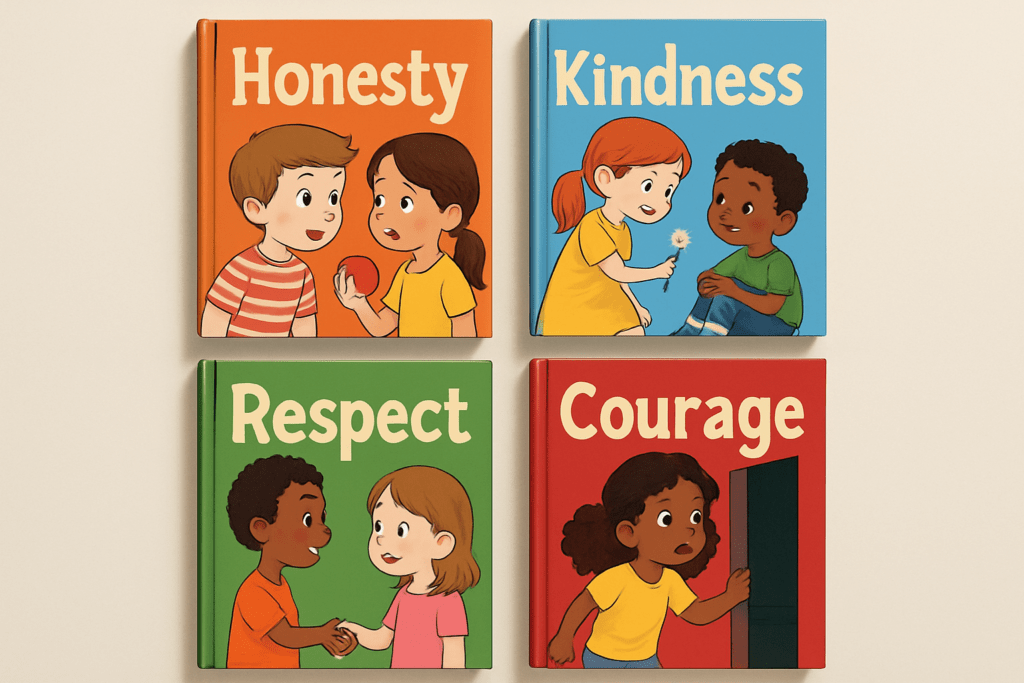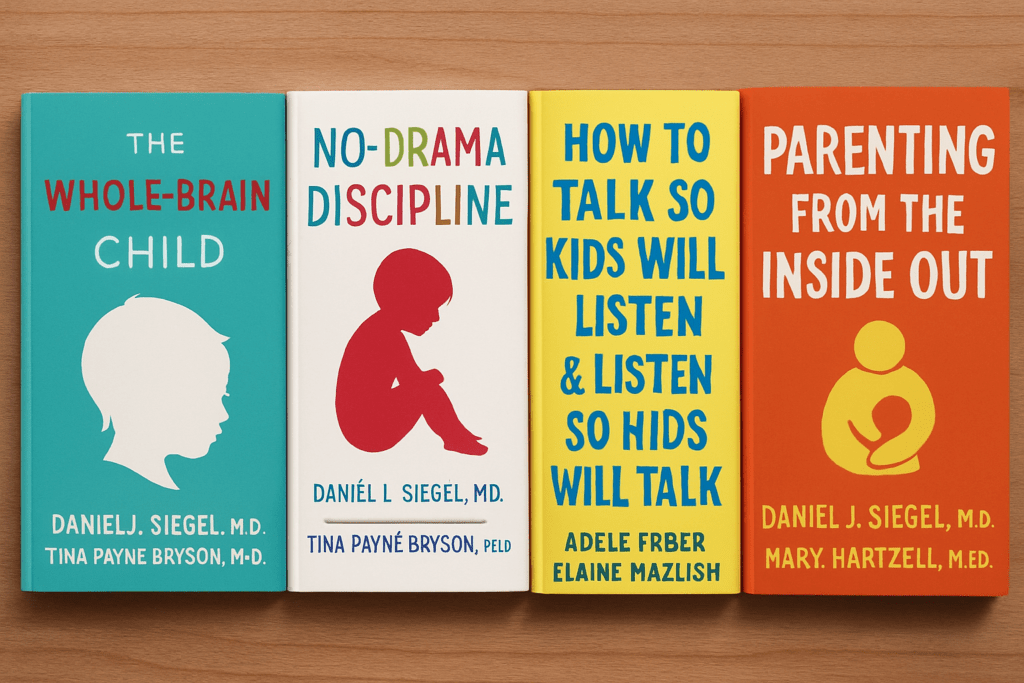Best Children’s Books That Teach Core Values: Sparking Character Growth Through Stories
- Why “children’s value books” matter in today’s world.
- The unique power of storytelling for teaching empathy, honesty, kindness, and responsibility.
What Happens After Winning Millions?
Winning a life-changing lottery jackpot is every player’s dream, but few are prepared for what comes next. The sudden influx of wealth can bring excitement, but also a wave of challenges. Many winners find themselves overwhelmed by financial decisions, from managing taxes to making smart investments. Some handle it well, while others struggle with reckless spending that drains their fortune faster than expected.
The Financial Reality of Winning
Many winners face critical financial decisions almost immediately:
- Taxes and Legal Issues – A large chunk of the winnings often goes to taxes, and failing to plan can lead to legal troubles.
- Investing vs. Spending – Some winners hire financial advisors to ensure long-term security, while others spend impulsively without a plan.
- Budgeting for the Future – Without proper money management, even the biggest jackpots can disappear quickly.
A Lifestyle Overhaul
A sudden fortune changes life in more ways than one:
- Luxury Purchases – Mansions, sports cars, and extravagant vacations become instantly affordable.
- Social Pressure – Long-lost friends and distant relatives often reappear, expecting a share of the winnings.
- Privacy Challenges – Some winners struggle with unwanted media attention and public scrutiny.
While some winners embrace their new wealth openly, others choose to live discreetly to avoid pressure and expectations.
Giving Back and Creating a Legacy
For some, wealth is not just about personal luxury—it’s an opportunity to make a difference. Many winners choose to:
- Donate to charities and community projects
- Fund scholarships or support education initiatives
- Invest in businesses that create jobs and opportunities
Some lottery winners go from players to philanthropists, proving that wealth can be used to leave a lasting impact. However, not all stories end positively—many who fail to manage their winnings properly find themselves bankrupt within years.
What Makes Value-Driven Children’s Literature Stand Out?
Not every book that lands on your kid’s nightstand is built to do more than entertain. So, what sets value-driven children’s literature apart from the endless sea of talking animals and silly rhymes? At its core, it’s about helping kids grow—not just laugh.
First, look for stories that feature characters kids can actually relate to. Whether it’s a stubborn rabbit learning to share or a shy kid standing up for a friend, you want someone on the page who feels real. That’s what makes lessons hit home.
Clear moral lessons are key, but there’s no need for the message to slap you in the face. The best value-driven books weave these lessons into the plot so naturally that kids pick up on them almost by accident. A story about honesty works best when the main character’s choices feel messy and true—not just black and white.
Age-appropriate is non-negotiable. A good values book meets kids exactly where they are—using words, situations, and humor that click for that age, and growing with them as their questions get bigger or tougher.
In the end, these books aren’t just filling an evening. They’re laying out a framework for future habits, quietly shaping how a child makes decisions or treats others, story after story. That’s the kind of reading that matters.
Spotlight Selection: Favorite Books That Nurture Goodness
Let’s cut to the chase: not all children’s books are created equal, especially when it comes to teaching the good stuff—honesty, empathy, perseverance. But dig around and you’ll find a goldmine of titles that don’t just entertain; they shape character, spark conversations, and stick with kids for the long haul.
1. Timeless Tales With Life Lessons
Classics like Charlotte’s Web deliver lessons smoother than a spoonful of honey. Through Wilbur and Charlotte’s friendship, kids see the magic of kindness and the beauty of sacrifice. Then there’s The Little Engine That Could—a no-fluff reminder that grit and a positive attitude take you further than most things in life. These stories have earned their stripes because, generation after generation, they keep laying the groundwork for real-world values: be helpful, be brave, believe you can.
2. Modern Must-Reads for Today’s Kids
Don’t sleep on the newer stuff, though. Lately, books like The Rabbit Listened by Cori Doerrfeld gently nudge kids toward empathy—showing, not bossing, how to listen when someone’s hurting. All Are Welcome by Alexandra Penfold puts inclusion front and center, making every kid feel seen, heard, and valued. For environmental smarts, try The Lorax (yes, the Dr. Seuss classic is as relevant as ever) or something fresher like We Are Water Protectors by Carole Lindstrom, which blends beautiful art and real urgency. Across the board, these reads offer something for every age and stage—simple enough for the little ones, layered enough for big conversations.
3. Diverse Perspectives and Universal Lessons
The best children’s books open windows, mirrors, and sliding glass doors into all sorts of lives. Consider Last Stop on Market Street by Matt de la Peña—a celebration of everyday wonder and seeing beauty in the unexpected. Julian Is a Mermaid by Jessica Love quietly pushes the envelope on self-expression and acceptance. These stories do more than preach; they walk the walk, nudging kids to see, respect, and empathize with experiences that might not look like their own.
If you’re the kind of parent who wants a steady stream of curated value-rich stories, check out some top parenting subscriptions that do the legwork for you—keeping your family bookshelf fresh and purposeful, month after month.
Bottom line? Whether you reach for an old-school classic or something hot off the presses, there’s a wealth of books out there that help kids flex their goodness muscles. And you don’t have to be a literary scholar to pick a winner—just look for stories with heart, honesty, and room to grow.
1. Timeless Tales With Life Lessons
Some books stay on our shelves for a reason. Take Charlotte’s Web—a simple story about friendship, sacrifice, and kindness. For generations, Wilbur and Charlotte have quietly shown kids what it means to care for others, even when it’s hard. Or The Little Engine That Could, with its can-do spirit: “I think I can, I think I can.” The message in that sentence goes way beyond trains. It’s about grit and the courage to try, two things every kid needs in the real world.
These classics don’t just entertain. When a child sees themselves in a character who does the right thing under pressure, the lesson sticks. The clear, straightforward storytelling means kids understand the heart of the message—kindness, honesty, perseverance—without a lecture. That’s what makes these stories foundational. They show, don’t tell. And in the simple struggles and victories of their characters, they lay the first stones of character, piece by piece, story by story.
2. Modern Must-Reads for Today’s Kids
If you’re looking for new releases that teach honesty, inclusion, and environmental care, the good news is you’ve got options. The newest wave of children’s books isn’t just shaking things up—they’re zeroing in on the values that matter in a world that’s changing fast.
For honesty, try The Invisible Boy by Trudy Ludwig. It’s about a child who feels overlooked but learns the impact of small acts of kindness—a great conversation starter about empathy and speaking up. For inclusion, there’s All Are Welcome by Alexandra Penfold, a bright, rhythmic celebration of different backgrounds and traditions, perfect for reading aloud and sparking talk about belonging.
Concerned about the planet? We Are Water Protectors by Carole Lindstrom pulls even young kids into the story of protecting Earth’s resources. It introduces responsibility and respect for nature without being preachy.
If you’re matching the right book to the right child, don’t overthink it—just stick to age-appropriate stories. Picture books like Strictly No Elephants for preschoolers plant simple seeds of empathy, while middle grade novels like Front Desk by Kelly Yang tackle honesty, resilience, and doing what’s brave when the stakes are real. The bonus of these modern picks: relatable characters, real-world situations, and no sugar-coating. Kids see themselves—or someone they know—and the lessons land a little harder.
In short: modern value-driven books don’t talk down to kids, and they don’t dodge tough topics. That’s a win for building character, one story at a time.
3. Diverse Perspectives and Universal Lessons
It’s easy to spot ourselves in stories when characters look and live like us—but what about when they don’t? Books that highlight different cultures, abilities, and family structures do more than broaden vocabularies; they build bridges. When a child in Idaho reads about a festival in Nigeria, or a city kid follows a rural character’s struggles, empathy grows one page at a time.
Take titles like Last Stop on Market Street or The Name Jar—these gently nudge kids to see the world through new eyes. They spark big questions and show that kindness, respect, and honesty stretch beyond borders. Reading diverse stories together is a low-pressure way for families to talk about real challenges and celebrate differences.
If you’re looking to keep the good momentum going, consider exploring top parenting subscriptions for curated book suggestions and fresh conversations. Consistency matters—so make space for stories that challenge and inspire, and you’ll help your kids grow into people who value everyone’s story, not just their own.
Practical Tips: Using Books to Teach Values at Home
You don’t need an advanced degree in parenting to turn storytime into something bigger—just a little intention. Once the last page is closed, ask open-ended questions like, “What would you do if you were in that situation?” or “How would you feel if that happened to you?” These conversations let your child step into a character’s shoes and think through choices together, without pressure or lectures.
Don’t treat values as a one-and-done subject. Kids benefit from hearing the same themes come up again and again; it helps lessons stick. Revisit favorite stories after a few weeks. Talk about how the characters’ actions looked different this time or if your child noticed something new.
Link stories to real life whenever you can. If you read about honesty, the message lands stronger when you refer back to it during a tough moment (“Remember how the main character felt better after telling the truth?”). Or, after a book about being helpful, involve your child in making a sandwich for a neighbor or sharing toys with a sibling. The goal: make the leap from fictional scenes to real-world habits, little by little.
Why Teaching Values Through Stories Sticks
Books sneak in the big lessons. When a child sees a fictional hero struggle to tell the truth, or help a friend, that story isn’t just entertainment; it’s a mental dress rehearsal. Stories give kids a front-row seat to the real emotions behind kindness, honesty, and responsibility—without finger-wagging or lectures. Reading about others’ challenges lets children imagine, “What would I do?” in a safe, low-pressure way. Plus, stories stick. Long after you close the cover, those scenes and characters live on in a child’s head, shaping the way they think and act, sometimes even more than a classroom lesson or a parent’s advice. That’s the real power: value-driven books work quietly, nudging better behavior one page at a time.
Find More Award-Winning Recommendations
Looking for more standout reads? Let the experts do the heavy lifting. Scholastic’s curated list is packed with books picked for their impact on developing character and integrity in kids. That’s a good place to branch out if you want your child’s shelf to stretch beyond the usual suspects. Remember, new gems arrive every year—explore with your child, swap recommendations with other parents, and don’t be afraid to step outside your own childhood favorites. Character doesn’t grow from just one story. Keep the search going—your next family favorite might be a page-turn away.
What Happens After Winning Millions?
Winning a life-changing lottery jackpot is every player’s dream, but few are prepared for what comes next. The sudden influx of wealth can bring excitement but also a wave of challenges. Many winners find themselves overwhelmed by financial decisions, from managing taxes to making investments that will secure their future. Some handle it well, while others struggle with reckless spending that drains their fortune faster than expected.
The Financial Reality of Winning
Many winners face critical financial decisions almost immediately:
- Taxes and Legal Issues: A large chunk of the winnings often goes to taxes, and failing to plan can lead to legal troubles.
- Investing vs. Spending: Some winners hire financial advisors to ensure long-term security, while others spend impulsively without a plan.
- Budgeting for the Future: Without proper money management, even the biggest jackpots can disappear quickly.
A Lifestyle Overhaul
A sudden fortune changes life in more ways than one:
- Luxury Purchases: Mansions, sports cars, and extravagant vacations become instantly affordable.
- Social Pressure: Long-lost friends and distant relatives often reappear, expecting a share of the winnings.
- Privacy Challenges: Some winners struggle with unwanted media attention and public scrutiny.
While some winners embrace their new wealth openly, others choose to live discreetly to avoid pressure and expectations.
Giving Back and Creating a Legacy
For some, wealth is not just about personal luxury—it’s an opportunity to make a difference. Many winners choose to:
- Donate to charities and community projects
- Fund scholarships or support education initiatives
- Invest in businesses that create jobs and opportunities
Some lottery winners go from players to philanthropists, proving that wealth can be used to leave a lasting impact. However, not all stories end positively—many who fail to manage their winnings properly find themselves bankrupt within years.


 Senior Parenting Writer
Senior Parenting Writer
